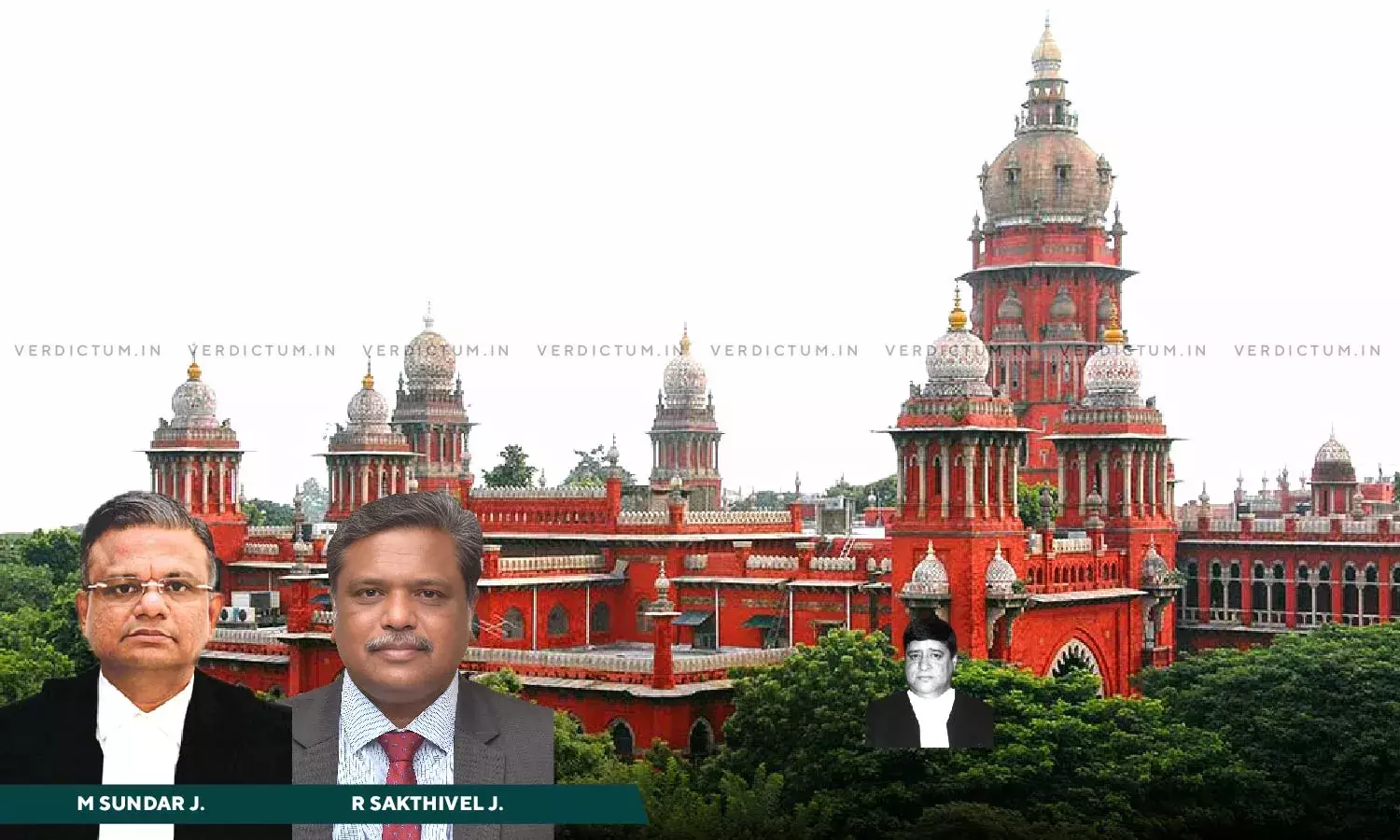Rule 22(1)(B) Of TN Suspension Of Sentence Rules Is Not An Impediment For Courts To Grant Leave To Convict Prisoner: Madras HC

Finding that the ground on which leave has been sought i.e., medical ailment has not been subjected to disputation or contestation, the Madras High Court granted parole of thirty days leave to the convict for taking medical treatment, who is now under incarceration at Central prison Coimbatore.
The High Court granted ordinary leave to the said convict prisoner without escort, however put forth a condition that said convict prisoner should sign every day in the forenoon session before jurisdictional Magistrate.
A Division Bench of Justice M. Sundar and Justice R. Sakthivel observed that “As regards Rule 22(1)(b) of said Rules, it is a piece of subordinate legislation made by Executive in exercise of Section 432(5) of 'The Code of Criminal Procedure, 1973 and constitutional powers of this Court cannot be constricted or stifled by such subordinate legislation. This means that Rule 22(1)(b) of said Rules is not an impediment as regards this Court granting leave”.
Advocate B. Shruthan appeared for the Petitioner and Advocate E. Raj Thilak appeared for the Respondent.
The brief facts of the case were that the petitioner's spouse (convict prisoner), is now lodged in Central Prison, Coimbatore, and had been imposed seven-year sentence by Additional District and Sessions Court, Salem. A representation was sent requesting 30 days ordinary leave claiming that convict prisoner is suffering from heart disease, Type 2 diabetes and has a raw wound in his right foot. Since it was advised by a private hospital to take treatment for three months failing which health issues may worsen, the Petitioner approached the High Court praying for grant of leave for convict prisoner.
After considering the submission, the Bench noted that the ground on which leave has been sought has not been subjected to disputation or contestation.
The Bench found that the only reason for rejection of leave plea is Rule 22(1)(b) of 'the Tamil Nadu Suspension of Sentence Rules 1982', which says that two years of imprisonment in cases of prisoners sentenced to imprisonment for a period exceeding five years but not more than fourteen years is imperative for grant of ordinary leave.
The Bench further found that the incarceration of convict prisoner has been far from blemish.
Accordingly, the High Court granted thirty days leave from Sep 04, 2023 to Oct 03, 2023, and clarified that on lapse of thirty days, the convict prisoner shall surrender in the office of third respondent.
Cause Title: Bhuvaneswari v. The Secretary Government of Tamil Nadu [Neutral Citation: 2023: MHC: 3983]
Click here to read/download the Order

